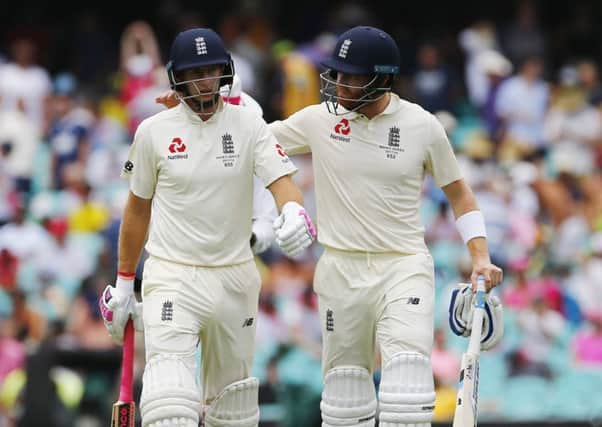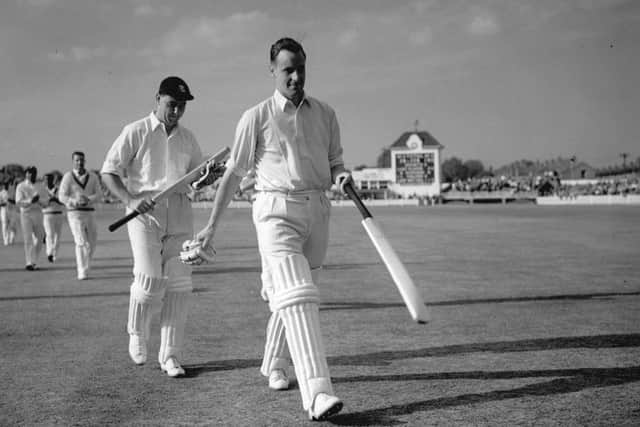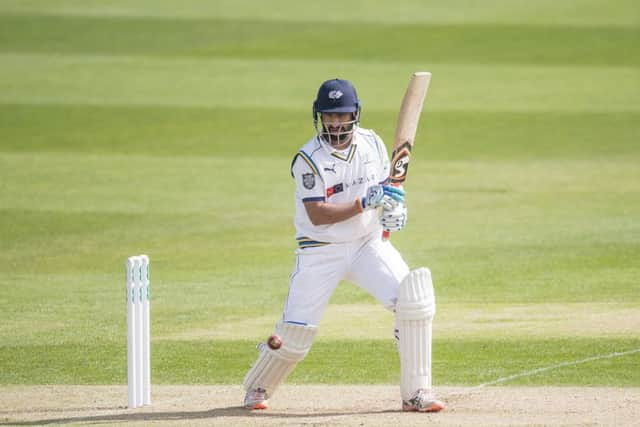Chris Waters – System failure further hampered by inability of England’s batsmen to ‘grind it out’


The systematic cheapening of the County Championship, with the number of matches reduced and the competition squeezed into the marginal months of April and September, has done nothing to encourage batsmen, spinners or pace bowlers in conditions that favour workaday seamers.
The charge of incompetence was levelled not only at the England and Wales Cricket Board and the first-class counties, but also at the game in general, blinded as it is by the pursuit of money and the riches on offer in the white-ball formats.
Advertisement
Hide AdAdvertisement
Hide AdConsequently, the traditional art of Test match batting – the ability to grind out innings and to put a heavy price on one’s wicket – is dying to the extent that those who can do it, such as India’s Cheteshwar Pujara, are commonly referred to as old-fashioned throwbacks, the cricketing equivalent of ZX Spectrums in a world of Apple Mac computers.
Indeed, it should come as no surprise to anyone who has just seen England hammered twice by the West Indies with one Test to play that if you do not have a county system properly set up to develop Test cricketers that you are unlikely to find batsmen capable of playing long innings any time soon.
Let us not pretend, either, that the players of today are somehow less talented than those of previous generations; had Peter May been born in 1999 as opposed to 1929, for example, he would probably be playing a shot a ball himself, doubtless encouraged to “express himself” at every opportunity.
No, this is a reflection on batting psyche, which has been transformed by white-ball cricket, and a Championship that no longer allows the Peter Mays of this world to develop.
Advertisement
Hide AdAdvertisement
Hide AdLast year, Joe Root, the England captain, played three Championship games for Yorkshire and seven Tests, whereas, 60 years earlier, for example, May played 18 Championship matches for Surrey in addition to five Tests and was thus conditioned far more to the rhythms and demands of the first-class game.


While suggesting that the system itself is the biggest problem, a problem that will only get worse when the ECB’s benighted 100-ball tournament starts next year, that is not to lay the blame squarely at the door of the ECB.
No England batsman has done himself justice on this tour, and there appeared to be a distinct lack of application in the second Test in Antigua especially – not so much an inability to adapt to the challenge of playing a long Test innings, but an obstinate refusal to do so unless it was constructed at something approaching white-ball pace.
There have been several occasions recently when England’s counter-attacking tendencies have paid off, and they would rightly point to an excellent record of eight wins in nine Tests prior to this series.
Advertisement
Hide AdAdvertisement
Hide AdBut there is a fine line between positivity and recklessness, and they will never be a great side unless they learn to stay on the right side of it consistently.


As such, each player must look in the mirror, while the captain and coach must take responsibility for what, at times, have been some pretty strange messages/tactics/team selections. To these eyes, a lot of England’s problems are really quite obvious, and one or two tweaks would certainly help.
Ever since the Sri Lanka series prior to Christmas, for example, this correspondent has cautioned in terms of the love affair with Ben Foakes and the apparent eagerness of many observers to pencil him in as wicketkeeper for the next decade.
Granted, Foakes is a splendid player – he may even be the best wicketkeeper – but are England now picking a specialist gloveman? If not (and they have not done this for years), why have they taken the gloves off Jonny Bairstow and disturbed the balance of the side, one which allowed them to play four seamers and two spinners against India last summer?
Advertisement
Hide AdAdvertisement
Hide AdBairstow has been moved up from the middle order to No 3 and effectively given a hospital pass, asked to do something that is not his natural game. This writer is clear: Bairstow’s best position is further down the order, with the wicketkeeping gloves back in his possession.
If not Bairstow at No 3, I hear you cry, then who?
Again, this writer is clear: Root should be batting there because he is the best equipped to do so. Root’s recent returns will no doubt frustrate him – he has only twice passed 50 in his last 18 Test innings – and the captaincy may be having an effect, which is a different debate for a different day.
It is well-documented that he does not want to bat at No 3, but can England really afford to give him the luxury? Most of us cannot do exactly what we want in this old world and Root could be a vital bridge between the flaky opening positions and the freewheeling middle order.
England, to these eyes, are consistently picking the wrong team – Joe Denly? – and they have got too many pegs in the wrong holes.
The system is clearly the biggest problem, but England are hardly helping themselves.